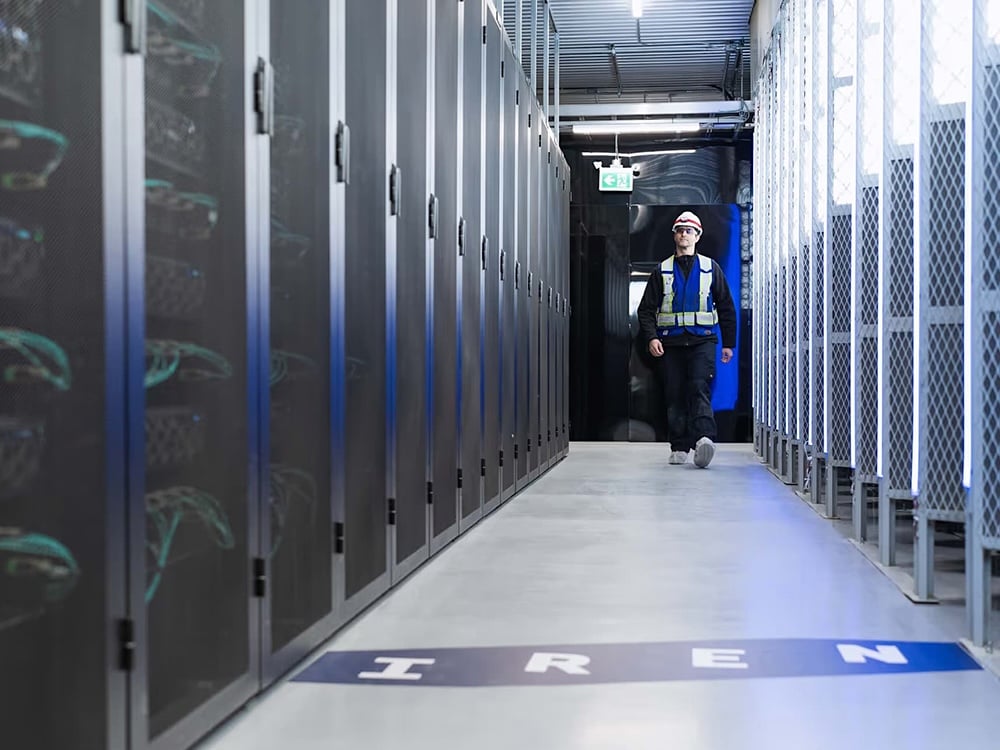Top Stories
B.C. Launches AI Data Centers Amid Power Supply Concerns

UPDATE: British Columbia is swiftly transforming into a hub for artificial intelligence (AI) as the province opens its first AI data centers in Prince George and Kamloops, but urgent concerns over electricity supply are emerging. The push for AI infrastructure coincides with a growing demand for power, raising critical questions about sustainability and resource allocation.
Port Moody-Burquitlam MLA Rick Glumac, who recently became B.C.’s minister of state for artificial intelligence, stated, “AI is everywhere. It’s changing how we work. It’s changing how we learn. It’s changing how we do business.” As B.C. aims to expand its AI sector, the challenge lies in balancing this growth with the province’s limited electricity supply, which stands at 12,000 megawatts.
The launch of AI data centers is seen as a significant economic opportunity, with major companies like Bell Canada planning to invest heavily in the sector. In May, Bell announced a new AI “data center supercluster” expected to consume over 500 megawatts, a staggering 5% of B.C.’s total power supply. Their first facility in Kamloops opened in June, with plans for additional centers underway.
However, the energy-intensive nature of AI operations poses a dilemma. Each AI data center can draw more than 100 megawatts, compared to conventional data centers, which require a fraction of that power. Companies like Telus are also entering the fray, promising operations that are fully Canadian and powered by renewable energy, but details on their power consumption remain unclear.
The provincial government has categorized data centers into three types: conventional, cryptocurrency mining, and AI. Currently, there are 12 notable conventional data centers in B.C., with three more requesting connections, potentially adding 40 megawatts to the grid.
Glumac emphasized the need for careful monitoring by BC Hydro, stating, “We want to make sure that clean energy supports not just data centers but supports the people in British Columbia and supports economic opportunities.” The rapid evolution of the industry means that regulatory measures may be necessary to ensure a balanced approach to energy allocation.
The urgency is compounded by national initiatives, as the Canadian federal government has also established a minister dedicated to AI and digital innovation. A newly launched AI Strategy Task Force is seeking public input throughout October 2023, aiming to position Canada as a leader in the AI domain while addressing pressing concerns about digital sovereignty and energy consumption.
B.C. has previously reacted to excessive energy demands from the cryptocurrency sector by imposing a moratorium on new electricity connections for mining operations, citing their massive energy consumption. This pause remains in effect, with the province now closely monitoring the burgeoning AI industry to avoid past mistakes.
In the midst of these developments, companies like Iren, previously focused on cryptocurrency mining, are pivoting towards AI data storage. Iren’s facilities in B.C. are now shifting to accommodate AI applications, with plans to double their AI storage capabilities. The company’s stock has skyrocketed, doubling in just one month, reflecting the growing market interest.
As B.C. navigates this rapidly changing landscape, experts stress the need for proactive planning. Kate Harland, research lead for clean growth at the Canadian Climate Institute, warns that failing to address the anticipated spike in energy demand could lead to significant challenges. “If suddenly data centers are 20% or 30% of your total electricity demand, then you get into a new territory of questions,” she stated.
With the AI sector expanding, the potential for economic growth is substantial, potentially driving $200 billion in productivity improvements nationally. However, the province must balance this growth with the need for sustainable energy practices.
As British Columbia forges ahead in the AI revolution, the implications for its energy grid and economic future are profound. The coming months will be crucial for policymakers and industry leaders as they strive to meet the demands of this emerging sector while ensuring that the needs of British Columbians are met.
-

 Politics4 weeks ago
Politics4 weeks agoSecwepemc First Nation Seeks Aboriginal Title Over Kamloops Area
-

 World5 months ago
World5 months agoScientists Unearth Ancient Antarctic Ice to Unlock Climate Secrets
-

 Entertainment5 months ago
Entertainment5 months agoTrump and McCormick to Announce $70 Billion Energy Investments
-

 Science5 months ago
Science5 months agoFour Astronauts Return to Earth After International Space Station Mission
-

 Lifestyle5 months ago
Lifestyle5 months agoTransLink Launches Food Truck Program to Boost Revenue in Vancouver
-

 Technology3 months ago
Technology3 months agoApple Notes Enhances Functionality with Markdown Support in macOS 26
-

 Lifestyle3 months ago
Lifestyle3 months agoManitoba’s Burger Champion Shines Again Amid Dining Innovations
-

 Top Stories2 months ago
Top Stories2 months agoUrgent Update: Fatal Crash on Highway 99 Claims Life of Pitt Meadows Man
-

 Politics4 months ago
Politics4 months agoUkrainian Tennis Star Elina Svitolina Faces Death Threats Online
-

 Sports5 months ago
Sports5 months agoSearch Underway for Missing Hunter Amid Hokkaido Bear Emergency
-

 Politics5 months ago
Politics5 months agoCarney Engages First Nations Leaders at Development Law Summit
-

 Technology5 months ago
Technology5 months agoFrosthaven Launches Early Access on July 31, 2025





















